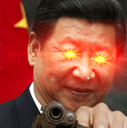This is a contentious subject. Please keep the discussion respectful. I think this will get more traction, here, but I’ll cross-post it to !Communism, too.
Workers who sell their labour power for a wage are part of the working class, right? They are wage-workers because they work for a wage. Are they wage-labourers?
“They’re proletariat,” I hear some of you shout.
“Not in the imperial core! Those are labour aristocrats,” others reply.
So what are the workers in the imperial core? Are they irredeemable labour aristocrats, the inseparable managers and professionals of the ruling class? Or are they proletarian, the salt of the earth just trying to get by?
It’s an important distinction, even if the workers in any country are not a homogenous bloc. The answer determines whether workers in the global north are natural allies or enemies of the oppressed in the global south.
The problem is as follows.
There is no doubt that people in the global north are, in general, more privileged than people in the global south. In many cases, the difference in privilege is vast, even among the wage-workers. This is not to discount the suffering of oppressed people in the global north. This is not to brush away the privilege of national bourgeois in the global south.
For some workers in the global north, privilege amounts to basic access to water, energy, food, education, healthcare, and shelter, streetlights, paved highways, etc. As much as austerity has eroded access to these basics, they are still the reality for the majority of people in the north even, to my knowledge, in the US.
Are these privileges enough to move someone from the ranks of the proletariat and into the labour aristocracy or the petit-bourgeois?
I’m going to discuss some sources and leave some quotes in comments, below. This may look a bit spammy, but I’m hoping it will help us to work through the several arguments, that make up the whole. The sources:
- Settlers by J Sakai
- Corona, Climate, and Chronic Emergency by Andreas Malm
- The Wealth of Nations by Zac Cope
- ‘Decolonization is Not a Metaphor’ by Eve Tuck and K Wayne Yang.
I have my own views on all this, but I have tried to phrase the points and the questions in a ’neutral’ way because I want us to discuss the issues and see if we can work out where and why we conflict and how to move forwards with our thinking (neutral to Marxists, at least). I am not trying to state my position by stating the questions below, so please do not attack me for the assumptions in the questions. By all means attack the assumptions and the questions.


Is it accurate to refer to the indigenous populations of settler colonies as proletarian? Do they work in factories to reproduce their society or do they work in factories to reproduce someone else’s society?
Can the indigenous trust the settler proletariat? Is it possible to build solidarity while there is oppression? Tuck and Yang talk about the interests of the indigenous being different than the interests of the settler proletariat. That’s not to say that the settler proletariat is inherently bourgeois-aligned, but rather that the satisfaction of the indigenous interests necessarily destroys, through synthesis, the way of life of the settler, which generates reaction.
The question isn’t one of idealism but rather one of the dialectic. It challenges us to consider whether the idea of international worker solidarity in the context of settler colonialism is actually an idealist position.